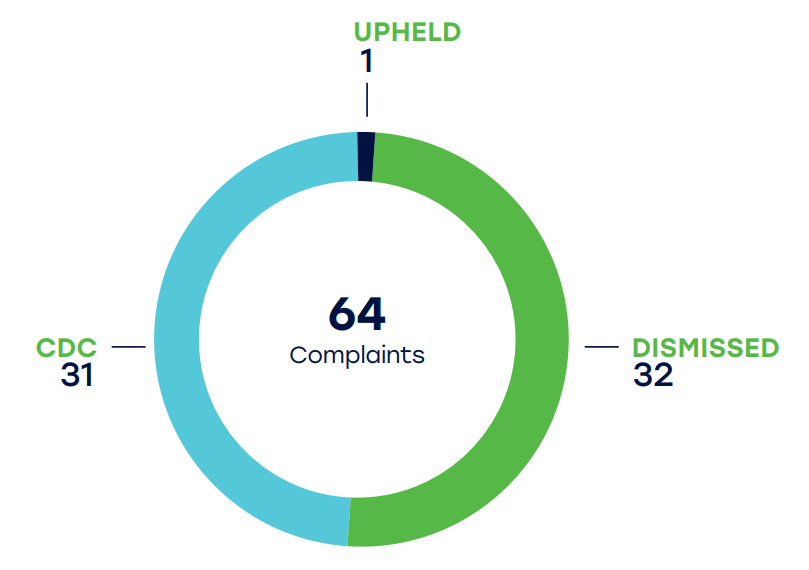Ad Standards’ recently published 2020 Review of Operations included a report on the trends and sensitivities regarding advertisements showing behaviour contrary to government health advice about hygiene and social distancing to reduce the spread of COVID-19.
This blog post reproduces key information from that report, highlighting the position of ‘regulatory pragmatism’ that Ad Standards adopted when concerns were raised by the public about advertisements not reflecting official health guidelines.
Like other business sectors during 2020, the Australian advertising industry was faced with a number of challenges as a result of the COVID-19 pandemic. A shift in public opinion on the types of behaviours viewed as appropriate to show in advertising content proved an important consideration for marketers during the pandemic.
Ad Standards also had to adapt to the situation to ensure our complaints adjudication process continued to be an effective and efficient way for the community to raise their concerns about ad content.
Taking a pragmatic regulatory approach
We noticed an early trend of consumer sensitivities towards specific types of behaviours shown in ads (such as social gatherings) and moved quickly to provide advice to advertisers about the importance of keeping their content in line with both prevailing community standards and Australian Government health guidelines.
To minimise the risk of their ads being complained about, we encouraged advertisers to ask the question: does this content meet current community standards?
Recognising that many ads were created before the pandemic, Ad Standards and the Community Panel adopted a ‘pragmatic regulatory’ approach to public concerns about ad content that showed usual community behaviour which was no longer acceptable because of the pandemic, such as shaking hands.
One of the first cases to raise these issues was an ad for cold and flu medication showing a woman coughing in a public park. Complainants raised concerns about the depiction of people failing to self-isolate while sick and treating COVID-19 symptoms with medicine. The Community Panel, however, determined that the imagery would have been in line with prevailing community standards pre-pandemic and dismissed the complaints.
Being proactive in assessing complaints
A COVID-19 ‘consistently dismissed complaint’ letter was developed at the beginning of the year and sent to complainants who raised pandemic-related issues, where the ad content would not normally be in breach of community standards and did not mock the pandemic or suggest that public health measures were unimportant. Thirty-one complainants received this letter during 2020 acknowledging their concerns and notifying them of the reasons their complaint did not proceed to a case for adjudication.
Out of the total 3,514 complaints lodged with Ad Standards in 2020, less than 70 complainants referred to pandemic-related issues in advertising content, with just one advertisement found to breach Section 2.6 (health and safety) of the AANA Code of Ethics on COVID-19 related grounds.

Making sure ads remain responsible
The upheld complaint was about a gambling advertisement, which was found by the Community Panel to trivialise social distancing and hygiene guidelines. While the advertiser had used the imagery of a man bursting out of a toilet stall and hugging a stranger prior to the pandemic, the voiceover encouraging viewers to ‘forget the elbow taps’ was added to the advertisement during the year.
In response to the Panel’s determination, the advertiser confirmed the ad had been discontinued following the complaint.
Overall, advertisers during 2020 continued to demonstrate their understanding of the importance of creating socially responsible content aligned to community standards, especially in times where extra sensitivity is needed.
See the Ad Standards 2020 Review of Operations for more information and all the complaints statistics for the year, available online at AdStandards.com.au